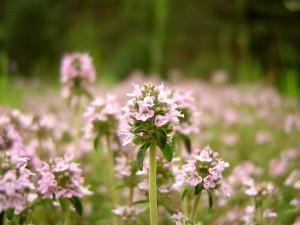
More evidence that low-calorie sweeteners are bad for your health
Studies show that artificial sweeteners can raise the risk of hypertension, metabolic syndrome, type 2 diabetes and heart disease, including stroke.

Natural Health News — Herbal preparations of thyme could be more effective at treating skin acne than prescription creams.
Researchers from Leeds Metropolitan University tested the effect of thyme, marigold and myrrh tinctures on Propionibacterium acnes – the bacterium that causes acne by infecting skin pores and forming spots, whiteheads and pimples.
Their findings were presented this week at the Society for General Microbiology’s Spring Conference in Dublin.
Better than benzoyl peroxide
Their laboratory tests found that while all the preparations were able to kill the bacterium after five minutes exposure, thyme was the most effective of the three. What’s more, they discovered that thyme tincture had a greater antibacterial effect than standard concentrations of benzoyl peroxide – the active ingredient in most anti-acne creams or washes.
Lead researcher Dr Margarita Gomez-Escalada explained: “While thyme, marigold and myrrh are common herbal alternatives to standard antibacterial skin washes, this is the first study to demonstrate the effect they have on the bacterium that causes the infection leading to acne.”
Tinctures are made from plants and herbs by steeping the plant material in alcohol for days or even weeks to prepare a tincture. This process draws out the active compounds from the plant.
In this study the researchers measured the effects of the active plant tincture against an plain alcohol control – proving their antibacterial action was not simply due to the sterilising effect of the alcohol they are prepared in.
Welcome news
These initial findings pave the way for more research into the use of tinctures as a treatment for acne.
A herbal treatment for acne would be very welcome news — particularly for acne sufferers who experience skin sensitivity. “The problem with treatments containing benzoyl peroxide is the side-effects they are associated with,” said Dr Gomez-Escalada.
“A burning sensation and skin irritation are not uncommon. Herbal preparations are less harsh on the skin due to their anti-inflammatory properties while our results suggest they can be just as, if not more, effective than chemical treatments.”

Please subscribe me to your newsletter mailing list. I have read the
privacy statement